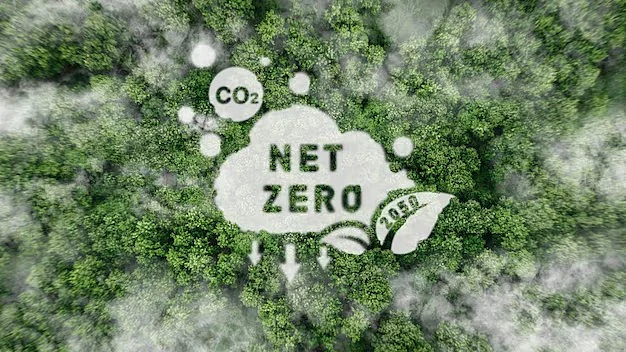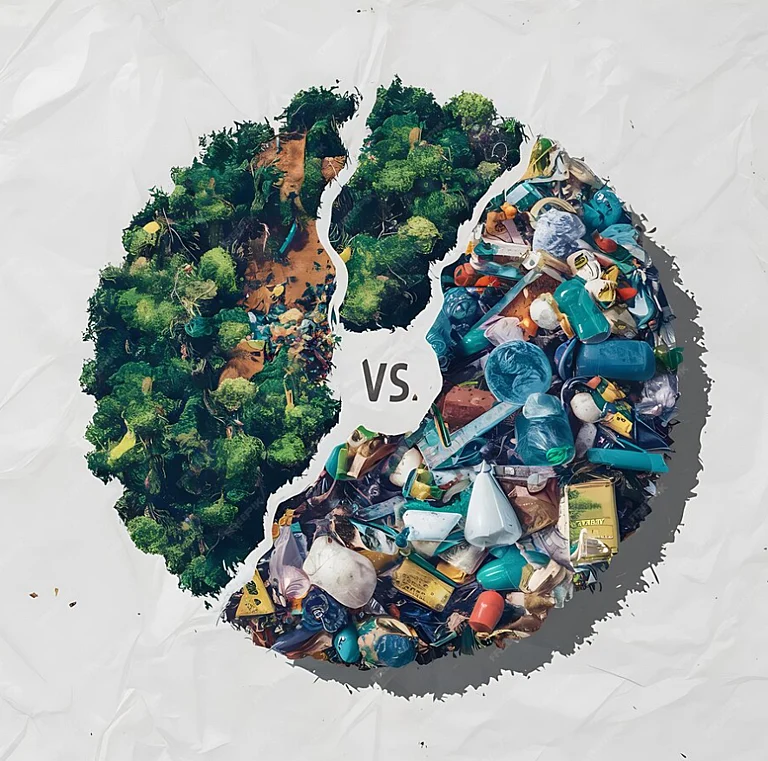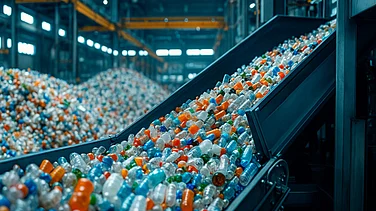Remember when 2050 felt like a distant milestone? Well, here we are—midway through the 2020s—and those net-zero deadlines that once seemed futuristic are now looming on the horizon. Companies, policymakers and individuals alike are grappling with a critical question: Are our sustainability goals ambitious enough to meet these targets, or are we simply checking boxes?
The urgency is real. Climate change isn’t a theoretical problem for the next generation to solve—it’s happening now. With extreme weather events, biodiversity loss and resource depletion making headlines daily, businesses can no longer afford to approach sustainability as a side project. As per a UN Environment Programme (UNEP) report, nations must collectively reduce annual greenhouse gas emissions by 42% by 2030 and 57% by 2035. It’s time for a fundamental shift: Instead of setting distant goals, we need to reimagine sustainability as an immediate business priority.
Making Sustainability Actionable
Imagine deciding to run a marathon despite never having trained for long-distance running. To succeed, you would first assess your fitness, set achievable milestones and seek expert guidance to avoid common pitfalls.
The journey to net zero follows a similar trajectory—it requires a strong foundation, a clear strategy and collaboration with experts to avoid inefficiencies and setbacks.
Too often, sustainability goals remain abstract, with organisations focusing on long-term ambitions rather than immediate steps. The gap between ambition and execution is where many sustainability strategies fall short. Organisations must adopt a strategy that embeds sustainability in their core operations rather than treating it as an add-on.
A Reality Check
The race to net zero is an imperative challenge that humanity has never faced before. But sustainable practices, including carbon reduction methods, have already been implemented for decades due to increasing environmental awareness. The issue isn’t a lack of solutions—it’s about scaling them up effectively.
According to S&P Global Commodity Insights, current nationally determined contributions (NDCs) would only reduce global emissions by 10% by 2030 compared to 2019 levels. This falls significantly short of the 43% reduction the Intergovernmental Panel on Climate Change (IPCC) deems necessary to keep global warming within the critical 1.5 degrees Celsius threshold.
This stark gap serves as a reality check, underscoring the need for collective action, bold policy shifts and accelerated innovation to close the emissions gap and secure a sustainable future.
Many industries are struggling to keep pace with their own sustainability targets. Why? Because sustainability initiatives often take a backseat when economic pressures mount. But here’s the truth: Sustainability and profitability aren’t mutually exclusive.
In fact, companies that embrace sustainable practices are seeing long-term cost savings, stronger brand loyalty and regulatory advantages. According to Deloitte’s Sustainability Action Report, 20% of respondents identified brand reputation as the top business outcome of enhanced ESG reporting.
Take FMCG for instance, one of the fastest-moving and most resource-intensive industries. From packaging waste to supply chain emissions, the sector faces significant sustainability challenges. There is a significant reliance of the FMCG sector on agricultural commodities such as grains, fruits and oils. Rising temperatures, erratic rainfall patterns, extreme weather events and the loss of suitable agricultural lands have significantly impacted agricultural production.
As per a report published by World Economic Forum, under current global warming trajectory, rice, maize and soybean yields could fall 24% by 2030. These extreme events also trigger short-term crises that erode communities’ and countries’ food security, with cascading impacts on regional stability.
However, leading brands are stepping up by adopting biodegradable packaging, optimising logistics for lower carbon footprints and integrating renewable energy into manufacturing. Those who innovate now—by embedding circular economy principles and prioritising sustainable sourcing—will be the ones still standing when net-zero deadlines arrive.
What Needs to Change?
Companies should set tangible targets backed by scientific data. Breaking down long-term commitments into achievable short-term goals ensures accountability and continuous progress. A case in point is Marico's commitment to achieving net zero emissions in its global operations by 2040 and in its India operations by 2030.
Companies must embed sustainability across their entire value chain—from investing in clean technologies and promoting sustainable practices throughout their operations.
Moreover, businesses must also engage with their stakeholders, including customers, investors and employees, to build a coalition of support for their sustainability goals. By doing so, companies can create a sense of shared purpose and accelerate their transition to a more sustainable business model.
Collaboration Over Competition
Sustainability isn’t a solo game. No single company, regardless of its size or influence, can tackle the net-zero challenge alone. To create real impact, industries must shift from isolated efforts to a more collaborative approach—one that involves sharing best practices, co-investing in green innovations and pushing for collective policy changes.
For example, packaging waste is a major sustainability concern in this sector, but if brands continue working in silos, progress will be slow and fragmented. Instead, companies can come together to develop standardised sustainable packaging solutions—such as compostable materials, refillable containers and industry-wide recycling programmes.
Collaboration is key to accelerating sustainable innovation. Green entrepreneurship driven by start-ups developing and deploying eco-friendly products, services and processes—has been expanding rapidly. According to a report by the Organisation for Economic Co-operation and Development (OECD), regions that foster strong local partnerships between entrepreneurs, investors, support organisations and governments have emerged as vibrant hubs for green innovation.
This collaborative approach is reflected in the substantial growth of green patents over the past two decades, increasing from 9.6% of all patents in 2000 to 15.8% in 2021.
A Blueprint to Holistic Sustainability
While re-evaluating their sustainability goals, organisations must also adopt a more holistic approach to environmental sustainability. This involves looking beyond mere carbon reduction and adopting a broader range of sustainability metrics, including water conservation, waste reduction and biodiversity protection. Moreover, businesses must also prioritise sustainability in their supply chains, working with suppliers who share their commitment to environmental responsibility.
The net-zero deadline isn’t just a checkpoint - it’s a wake-up call for businesses to rethink their approach to sustainability. The companies that seize this opportunity can create a more sustainable future, not just for themselves, but for generations to come.
The author is Chief Legal Officer, Group General Counsel and Secretary of the CSR Committee, Marico Limited.




























